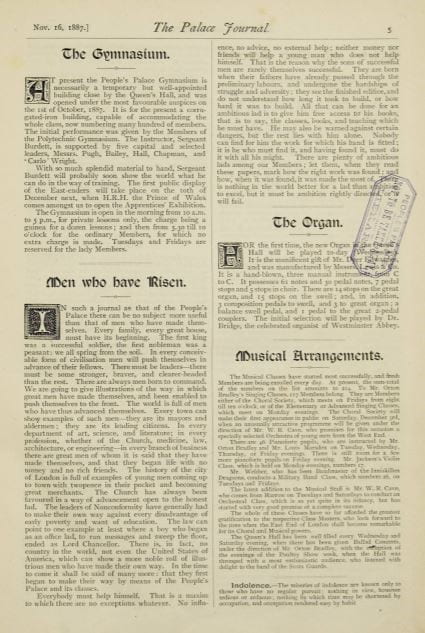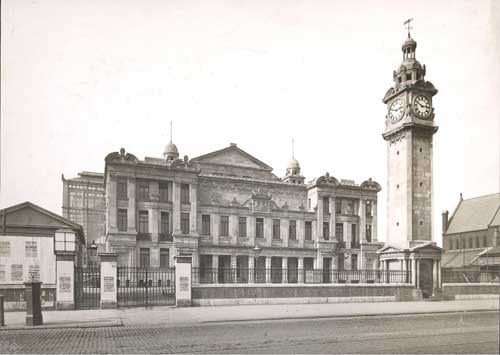From Regret to Optimism: Finding Common Ground in a Foreign Institution
The overarching feeling I’ve had since my journey to London has been one of regret. Leading up to my departure, I was on campus working and observing the start of the Fall semester at Amherst as an outsider. I didn’t get to share my excitement or disdain for my upcoming classes with my peers or forge any relationships with the incoming class. I wanted so badly to talk about classes and exchange in the same getting-to-know-you conversations that are so frequent during the first weeks of a new semester.
My feelings of regret didn’t disappear when I started travelling to London. While on the plane, I started to think that I should have studied abroad closer to home and even that I shouldn’t have studied abroad at all. When I landed in London at Heathrow Airport and started to meet other people in Arrivals that were a part of the Institute for Study Abroad (IFSA) Butler Program to which I applied to Queen Mary University of London (QMUL) through, my feelings of regret intensified.
I was reminded that the diversity intentionally cultivated in Amherst’s community is not the same as the diversity found everywhere else in the world. I was one of the few students of color and one of the even fewer Latinx students in the IFSA-Butler Fall semester cohort. Part of me knew that there would be few Latinx students within my cohort prior to arriving in London, but it was still shocking to actually experience. Of more concern to me than finding fellow Latinx students was finding other students who were First-Generation and/or low-income (FLI).
Find other FLI students I did not. During the IFSA-Butler orientation, I was often more overwhelmed by the differences between myself and the other students in my cohort than by being in a new place. I was surrounded by conversations of the innumerable destinations other students were planning or already set on going to during their semester abroad. Much to my duress, some students talked about their prior ventures in Europe, while others talked about the other places in the world they had gone.
Frankly, I felt so out of place when I compared myself to my peers in the IFSA-Butler cohort. My feelings of alienation only increased as Orientation progressed and I was genuinely worried there wasn’t any other FLI student like me.
As part of the IFSA-Butler Program, I met with professional staff for an advising meeting during which I could talk about my academic and personal goals while abroad. After having some incredibly disheartening few days, I didn’t expect much out of my advising meeting, but I was pleasantly surprised.
My advisor was an alum of QMUL and, upon telling him about my goals as a GEO Blogger, he informed me that I was at the best institution to research educational equity in institutions of higher education in England.
QMUL was founded as part of a philanthropic initiative that sought to bring culture, education, and recreation to the East End of London. The People’s Palace, one of the first buildings of what would become QMUL, opened its doors in 1887 with the intention of bringing accessible education for working class white men.
The opening of People’s Palace was notable not only for the population it intended to serve, but also for its location. On its own, the East End of London has a wealth of history from its historic poverty to its bought of terror caused by the infamous Jack the Ripper. Aside from the sensationalism of Jack the Ripper, the East End is significant because it has long been home to immigrant populations. As such, the area is constantly changing and, during the 1800s, it was closely linked to the capital as it supplied many of its workers, many of whom would be educated at the People’s Palace.
“A Technical Day School was also formed, with a membership of nearly two hundred lads, who, instead of following out an education which would inevitably lead them into the ill-paid clerkly market, are now receiving a first-class technical education, and are mastering, both in theory and in practice, the particular trades which they have chosen, in a manner calculated to revive and sustain the British reputation—which some think on the wane—for turning out the very best workmen. There was a time, and that not many years ago, when Professor Huxley applied to East London the words of Dante—’ All hope abandon ye who enter here.’ However true that description might have been some four or five years ago, we venture to think that the Professor would be compelled to acknowledge its inapplicability now, did he but see the two thousand youths, men and women, of East London, engaged at these evening classes…”
Excerpt from The Palace Journal, Vol. 1 – No.1
The east London students of the nascent QMUL held potential beyond Technical Schools. Soon, the People’s Palace needed to be expanded into the arts and humanities and the sciences to meet the potential of its local students.

First installation of the column, Men who have Risen, in The Palace Journal which highlighted notable men who came from humble beginnings.
Though QMUL has changed significantly from when it was just the People’s Palace, it has continued to be committed to serving non-traditional students and the East End of London.
Upon learning of and delving further into the history of QMUL and east London, I began to feel more at ease with my decision to study abroad. With a better understanding of QMUL and East End, I have become more and more convinced that I made the best decision for my study abroad experience. I was overjoyed to learn that QMUL has a history of creating pathways to higher education for those of whom higher education was not originally intended.
At Amherst, I am fully aware of the fact that the institution was never founded with the intention of educating a student like me, much like many of my peers. Yet, I am now into my third year at Amherst and, not only that, I am at another institution that was never founded with the intention of educating me. At times when I was most overwhelmed about studying abroad, a dear friend reminded me that the process of discomfort, fear, and all the other negative feelings that I was working through was one that I was familiar with already. I’ve had to work through and within institutions never intended for me my whole life and QMUL is just another and so is England.
As I enter my second week of classes, I have to remember my purpose in studying abroad. For me, it’s not about traveling to so many different countries, England is enough for me for now. I intend to focus on my academics and forge academic relationships at QMUL. But these are my goals. I hope that as more students like me, those who are Latina or First-Generation or low-income as much as students who are unlike me find their path in study abroad, especially as my regret of the beginning of my journey turns more to optimism and excitement every day.

